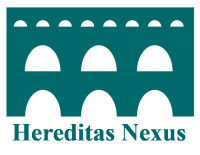
Reviewer: Wouter van Dijk
Archival futures, Caroline Brown (ed.)
Facet Publishing (London 2018)
ISBN 9781783301829
Paperback, with bibliography and index
156 pages
£ 69,95 / € 81,00
Archival futures
The future of our profession as an archivist is under pressure if you have to believe the alarming messages at conferences, in books and magazines. There is plenty of discussion about future access to archives, their access and availability and the role of archive staff as intermediaries between collection and public, which may or may not disappear. These and more issues are also addressed in the Archival Futures bundle. Caroline Brown edited the bundle, she is an archivist at the University of Dundee. Thirteen authors contributed to the book, including well-known names such as Luciana Duranti, Geoffrey Yeo, Barbara Reed and Frank Upward.
Future of the archive
In the bundle, nine contributions paint a picture of current developments in the archive sector, and the authors look ahead to possible future scenarios. For example, Kate Theimer researches the technological developments in processing and offering access to archive collections. She sees the role of the archivist shifting from a gatekeeper who provides access to the collection by means of description, to an advisor who can help users to find useful information in the available abundance.
Authenticity and reliability
Duranti points to the continuing importance of the authenticity and reliability of digital archival documents and sees the archivist as a guardian of the 'correct' information that can inform the public, a call that resonates in the article by Reed, Oliver, Upward and Evans about the Recordkeeping Informatics approach, which also focuses on ensuring reliable, authoritative and evidential records upon creation. An important part of this approach is thinking in digital networks, which dominates our current society. This is also discussed in the contribution of Victoria Lemieux, who writes about the future of blockchain technology. Just like Duranti and Reed et al., Lemieux is convinced that archivists have an important task in ensuring the reliability and authenticity of the archive documents in these networks.
Keep everything!?
Geoffrey Yeo's article is one of the most interesting in the collection. He argues that selection of archival documents will probably no longer be necessary in the future. He shows that the commonly used effectiveness and cost arguments are probably not sustainable for the future. He wonders whether it would not be much fairer for the user to make all the archive produced available, and not just a residue that was always arbitrarily formed by the archivist. While Yeo's tantalizing stance and reasoning is certainly thought-provoking, the matter is not as straightforward as he proposes and scenarios can be imagined where it is undesirable to preserve everything that is produced. However, that does not make his thought experiment any less intriguing. He also still sees a role for the archivist as a signpost through the forest of information, a shared vision that can be found by all authors.
A bright future
Although the circumstances change, just like job names and jargon, from archivist to information professional and from archival document to record and information, there are also constants to be pointed out. The need for information to be reliable, authentic and complete will continue to exist, along with the need for people who take care of it. Just as the need will continue to exist for people to interpret all information that is available, be it educational staff or historians where historical sources are concerned, or consultants who advise organizations on archiving methods or information retrieval. In that light, we can see the lively debate about the future of our field as something positive, as an expression of a professional group that is not about to disappear but is very much alive.
Wouter van Dijk
